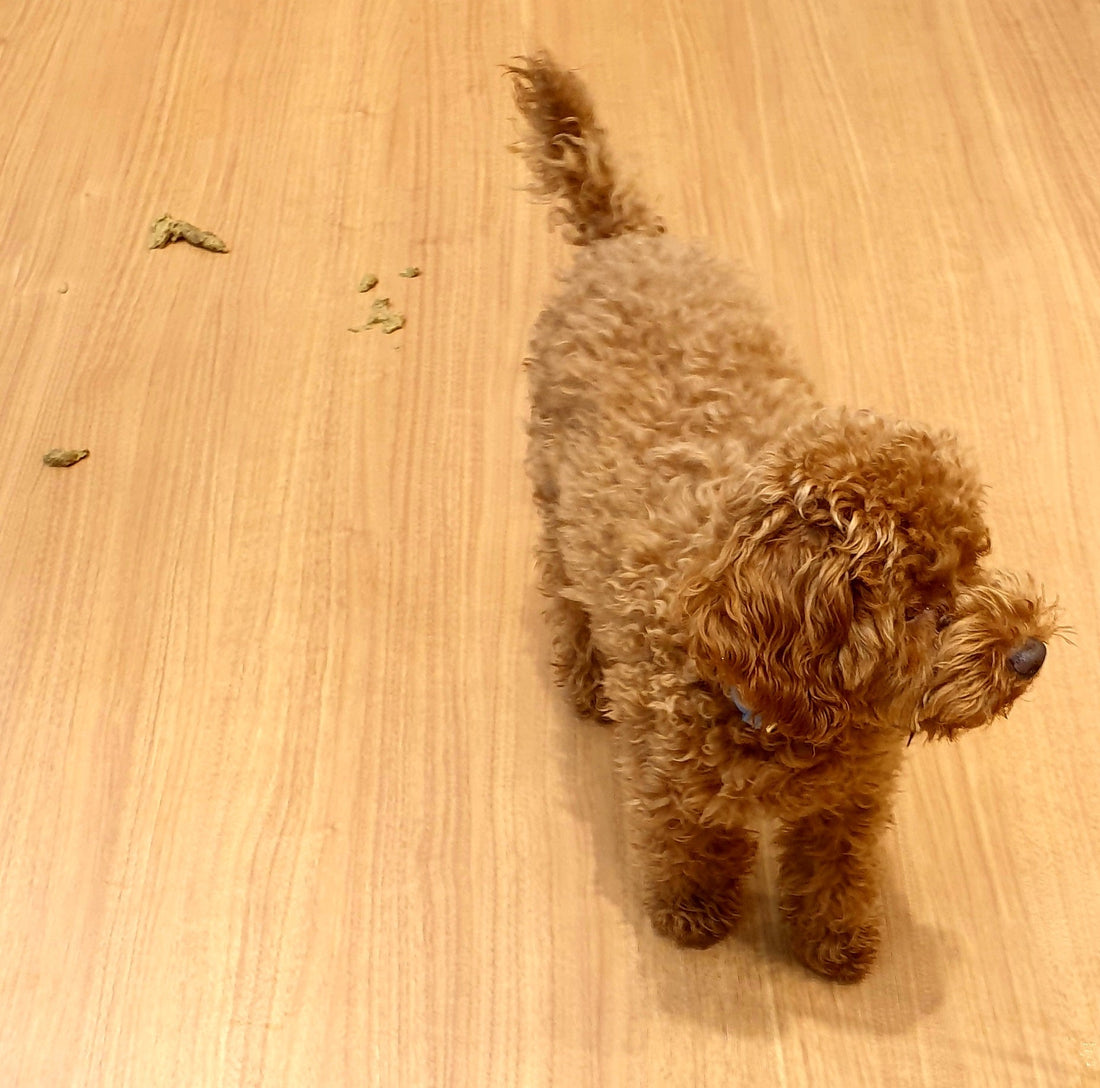Diarrhoea in puppies is quite common, but it can range from something mild and self-limiting to a sign of a serious illness. Here’s a breakdown for you listing 3 most frequent reasons:
🔹 Common Causes
-
Dietary-related Diarrhoea in puppies :
-
Sudden food change
-
Overeating
-
Eating spoiled food, garbage, or non-food items (“garbage gut”)
-
-
Infections resulting in puppy diarrhea :
-
Parvovirus → often severe, bloody diarrhoea, vomiting, lethargy (life-threatening, especially in unvaccinated pups)
-
Worms (roundworms, hookworms, whipworms)
-
Giardia or coccidia (protozoan parasites)
-
Bacterial infections (Salmonella, Campylobacter, E. coli)
-
-
Stress-related dog diarrhea :
-
Travel, rehoming, or separation anxiety can trigger diarrhoea in all dogs and not only for puppies

-
Travel, rehoming, or separation anxiety can trigger diarrhoea in all dogs and not only for puppies
🔹 What You Can Do at Home (for mild cases only):
-
Hydration: Ensure your lovely puppy has a constant access to fresh water.
-
Diet: Withhold food for 6–12 hours (if the pup is older than 8 weeks), then offer a bland diet of boiled chicken (no skin/bones) and plain rice or pumpkin.
-
Small meals: Feed small, frequent portions.
-
Diarrhea treatment : For puppy older 12 weeks old the efficient way of professional help may be a natural digestive supplement like GastroBalance Diarrhoea for small dogs that stops diarrhea in pups in 24 hours. Yes, it's easy in use, and after you only need to check stool consistency!
🔹 Prevention
-
Keep up with vaccinations (especially against parvovirus and distemper).
-
Regular deworming and fecal checks.
-
Introduce diet changes gradually.
-
Puppy-proof your home to prevent eating inappropriate items.
👉 Because puppies can deteriorate quickly, if the diarrhoea lasts more than 24 hours, or your puppy is very young, always call your vet





